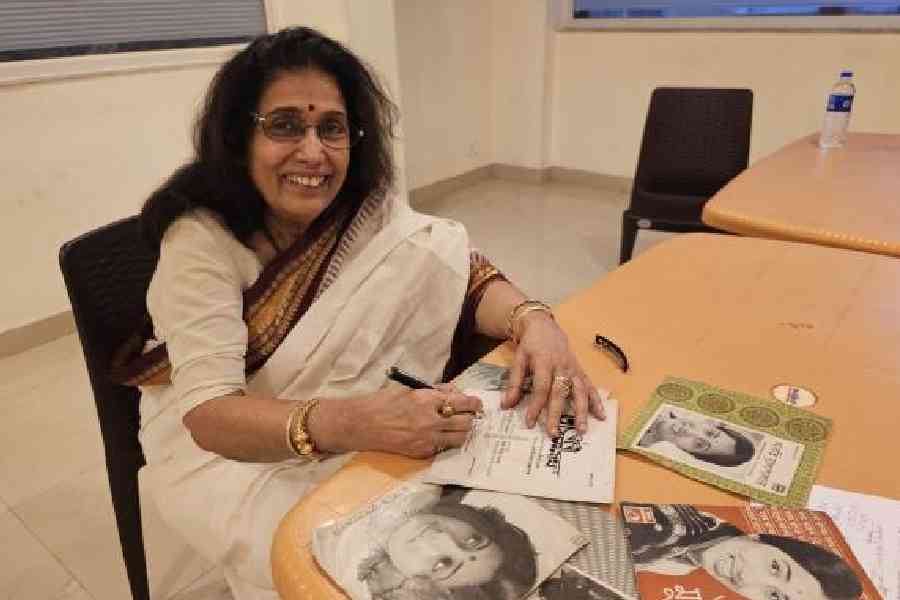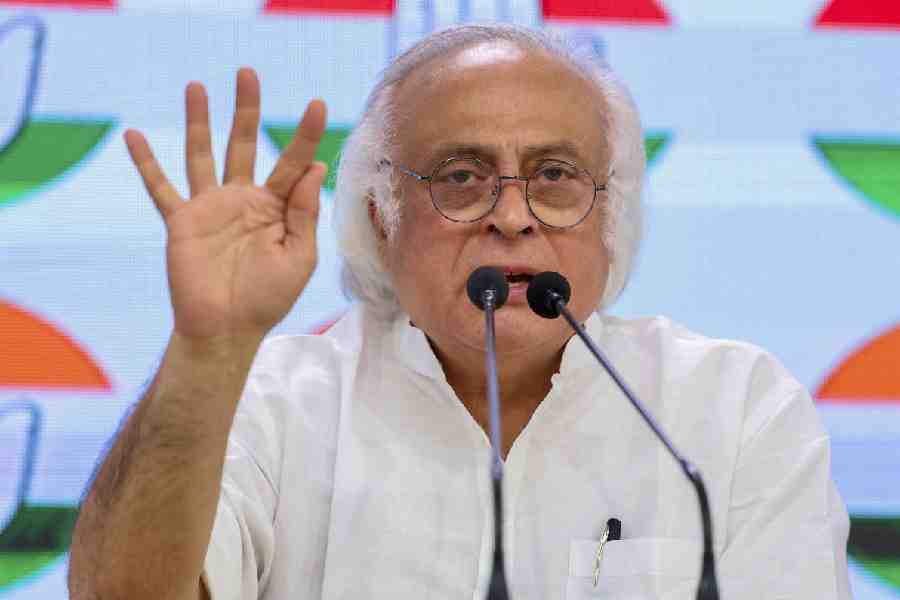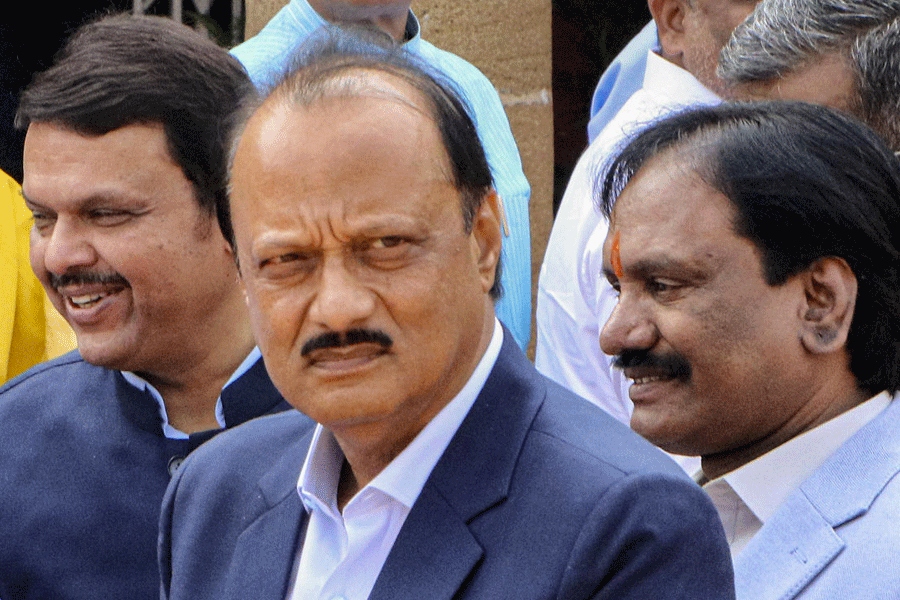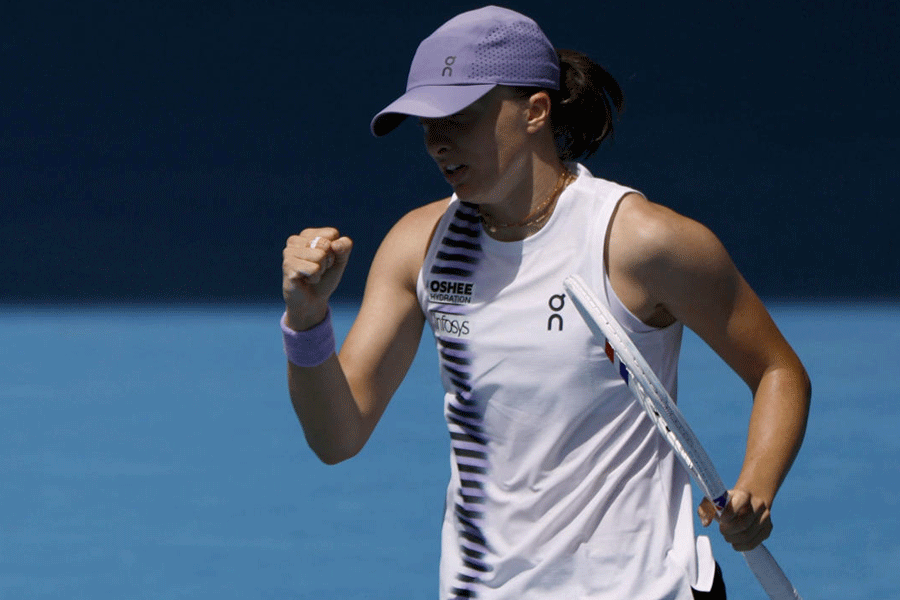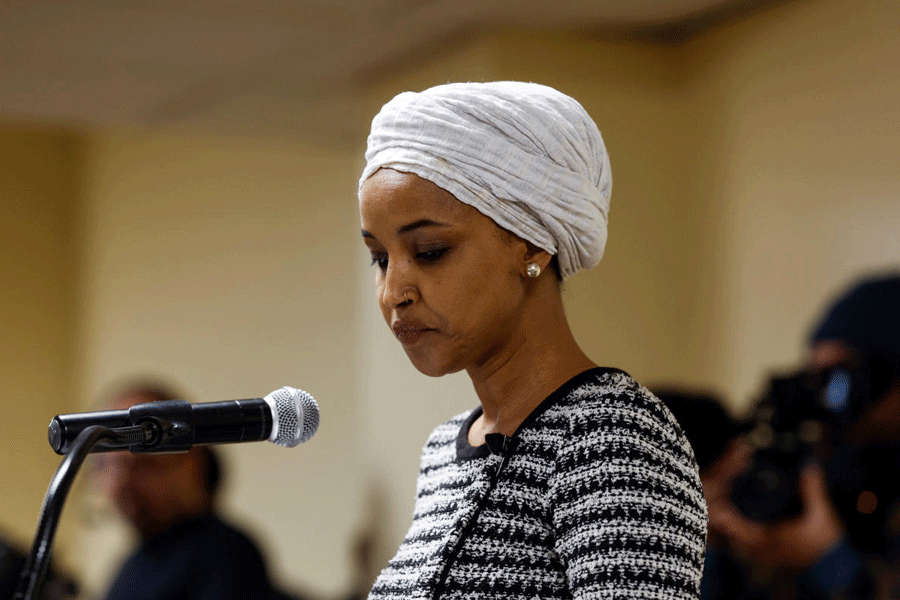Arati Mukherjee, the last remaining icon from the golden era galaxy of Bengali singers who enriched both Bengali music and the Hindi film industry, is active even in her 80s. Settled in Mumbai, she flies over solo to the city of her birth and nurture on every possible occasion, personal and professional. As recently as April, she presented a bouquet of 10 songs at a Serum Thalassemia Prevention Federation at Mahajati Sadan. Every day she still spends 45 minutes with her harmonium. “Reyaj is a part of my life. The voice needs daily tuning,” she explains.
Seated at her Sunny Park apartment, draped in a gold-bordered white sari, Mukherjee reflects on her career that spanned close to seven decades, 13 languages and diverse genres, from light modern to devotional and semi-classical.
“My life has always been full of travel. I have worked consistently in two cities, even after getting married, in Mumbai. Then my son went off to settle in Pondicherry at a young age,” she reflects.
That meant she hardly ever had time to see the films she sang for, making it difficult for her to name a single heroine whose lip sync abilities impressed her the most. “I sang for so many of them — Saira Banu, Vyjayanthimala, Madhubala, Nimmi.... I was so young then. Singing for films used to feel quite strange. Watching films was not a habit at home. I sang in Hindi films before I did playback in Bengal, except for a bit of singing I did in a film with Dhananjoy Bhattacharya, who had judged a contest I had won as a teenager.”
Masoom moments
Later she would sing for Shabana Azmi as well. “Shabana was so sensitive in Masoom,” she said, recalling one of her biggest hits in Hindi, Do naina aur ek kahani. I had sung for her earlier as well, in Ek Baar Kaho.”
She remembers chatting with Sekhar Kapur, whose directorial debut was Masoom. “When he explained the situation of the song to me, I told him the story sounded like Erich Segal’s book (Man, Woman and Child). He laughed and said that was the story he was remaking.”
Masoom was her second film with R.D. Burman after Rusvai. “There were several other songs in the film. He got them recorded by others,” she says, with a tinge of melancholy in her voice. “I could not be there whenever required because of my commitments in Calcutta. ‘Aar ki tui gaibi? Oto dur theke tui parbi na,’ Panchamda (RD) used to tell me. ‘How can I sit in Mumbai in wait for a song when I am wanted in Calcutta?’ I used to tell him. So many Mumbai composers used to fret over my absence. ‘At least inform me before you leave,’ Panchamda would say.”
She also mentions Rekha. “I sang for her in Ganga Ki Saugandh (the dance number Dekho sapne saje with Md. Rafi).” She loved Saira Banu as well in Chhoti si panchhi (Sagina Mahato).
Mukherjee is full of praise for the leading ladies back home as well. “I have sung for Suchitra Sen — Har Mana Haar (Ami jeno tare), Fariyad (E amar buk bhorano), for Moon Moon…. The other day I met Raima at a programme at St. Xavier’s College. I told her that I had sung for her mother and grandmother. Now I want to sing for her. Bollam ‘tor tai sudhu baki’. I can even call up the producer of her film to achieve this feat (of singing for three generations).”
Sen, she recalls, was already quite aged when she sang for her. “Yet she was so smart and pretty! I used to see her in the studio.”
An Uttam singer
She met Uttam Kumar often. “Almost all films were Uttam-starrers in those days. And he would be so involved in the music. He would leave instructions with Aloknath Dey, the music arranger, not to record till he heard a song.”
Musicians used to welcome his intrusion. “Amra onar nak golano tai chaitam. His suggestions would help us reach perfection.”
Uttam Kumar, she agrees, was an excellent singer himself. “Nachida (Nachiketa Ghosh) composed Ei mom jochhonay for him to sing at a programme of Silpi Sansad (the artiste’s forum he founded) at Rabindra Sadan. He sang while Benudi (Supriya Chowdhury) did a narration.”
Mukherjee was in the wings and pleaded with Ghosh to let her record the song. “I had just sung Tokhon tomar ekush bochhor, in 1976. Bonyo bonyo e aranya released soon after. Mom jochhonay would come in 1978. It was a phase of superhits. The royalty cheques still come for those songs.”
But Uttam Kumar singing the song in public and a subsequent home recording emerging made her nervous about the song’s fate. “So many people had already heard the song (in Uttam Kumar’s version). But Nachida said it would sound fresh in my voice,” she said, lauding his foresight.
The conversation shifts to Banyo banyo e aranya. When t2 points out how unusual the song is, she speaks of the trend of songs in chorus in those days. “ABBA, Boney M… they were all a rage. A shop on Free School Street used to sell old Western records. The seller handed me a Brazilian group’s album. How wonderfully synchronised the voices were! I took it to Sudhinda (Dasgupta). He asked me: ‘Tumi ki eta gaite chao?” I told him: ‘Apni gaaoale gaibo.’ He took just the opening bars of the Brazilian song and created the rest afresh. And it worked so well!”
Even Tokhon tomar ekush bochhor, she agrees, has a Western format. “Bappi (Lahiri, its composer) was younger to me. The song has straight notes but such unexpected notes they are!”
Among composers, she names Ghosh and Dasgupta as her mentors. “I have sung for Shyamal Mitra as well. Deya Neya had such wonderful music!”
She points out that she has sung light classical songs too. “Na holo chokhe dekha is a toppa.” She remembers singing a bhajan, Hari om tatsat, composed by Ravindra Jain, at her friend Nabaneeta Sen (later Dev Sen)’s birthday. “She had asked me to bring my gaaner khata along. On hearing that song, she blurted out: “Eto oporey niye jashna amader. Ektu thumri, toppa sona,” she laughs at the recollection.
After hits, the misses
She has two regrets — not cutting Puja albums with Salil Chowdhury and R.D. Burman. Asked why she does not have as many songs with Chowdhury, she points to the compatibility of his music with Lata Mangeshkar’s voice. “He was very fond of me. He kept telling me he would return from south India, where he was an industry regular, and compose. I waited for six months before Puja in 1983 but it never happened.”
RD, she says, had himself offered to record a Puja album with her after Rusvai. “But later his assistants advised me to back out of the project as there were personal issues on his side.”
A recording with Kishore Kumar was always eventful. “He would storm in and the atmosphere in the studio would change. He would start off singing a bit of Pankaj Mullick or K.L. Saigal. That was his way of creating the mood. His voice was both romantic and powerful,” she recalls of her co-artiste in Do panchhi do tinke (Tapasya).
“Hemantada’s voice was so sweet and romantic and matched Uttam Kumar. Manna da had a classical base. He would always ask what new project I was doing. I miss learning from them.”
She recalls the day Lata Mangeshkar died. “The flower I place daily at Ma Saraswati’s feet fell off that day.” Despite all the prevailing talk of the Mangeshkar sisters monopolising the industry, she remembers “Latadidi” with reverence. “She was the one who had sent me to Laxmikant (Kudalkar, of the Laxmikant-Pyarelal duo) for Parvarish. She was leaving for Kolhapur to take a break. She made the call herself, recommending me.”
Among the current singers, she likes Kumar Sanu. “There is so much vigour in his voice. Alka (Yagnik) sounds so sweet. Kavita (Krishnamurti) has a different kind of voice, with classical training. Now Shreya (Ghoshal) is singing well.”
Ahead of her birthday, she prays that her voice holds till her last breath. “I was in Calcutta even in June for a show and got hospitalised. But I will carry on,” she smiles.

